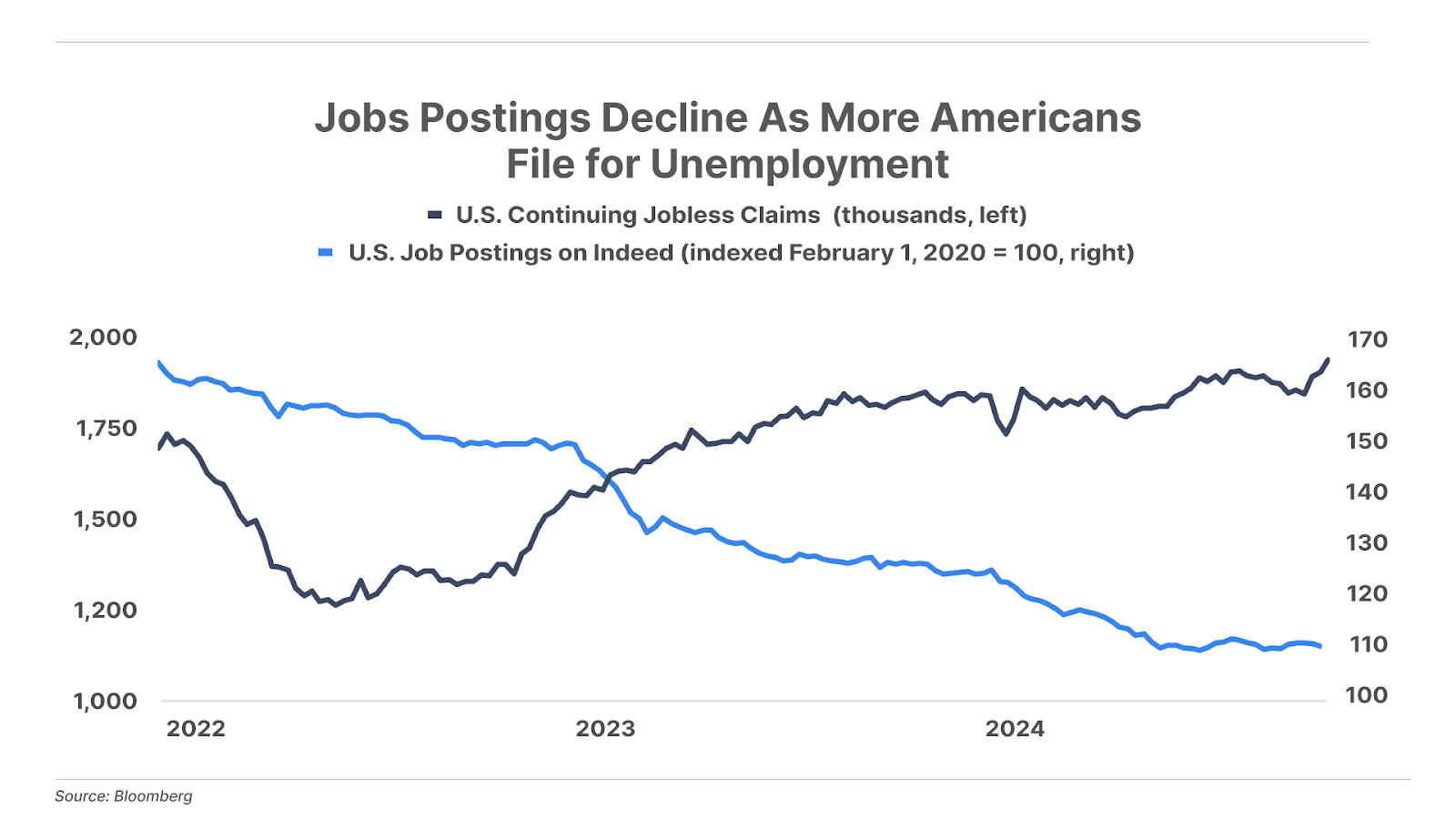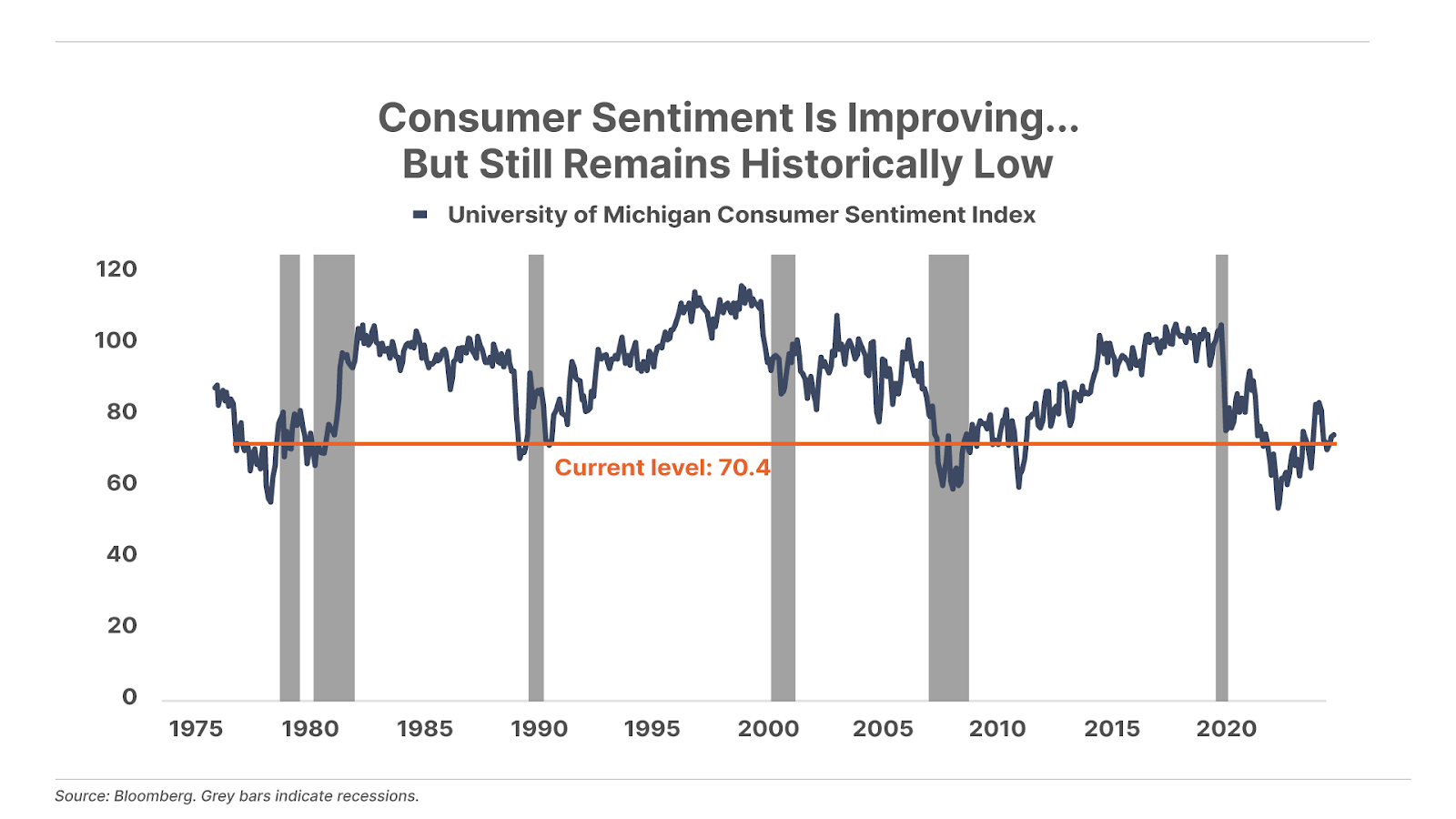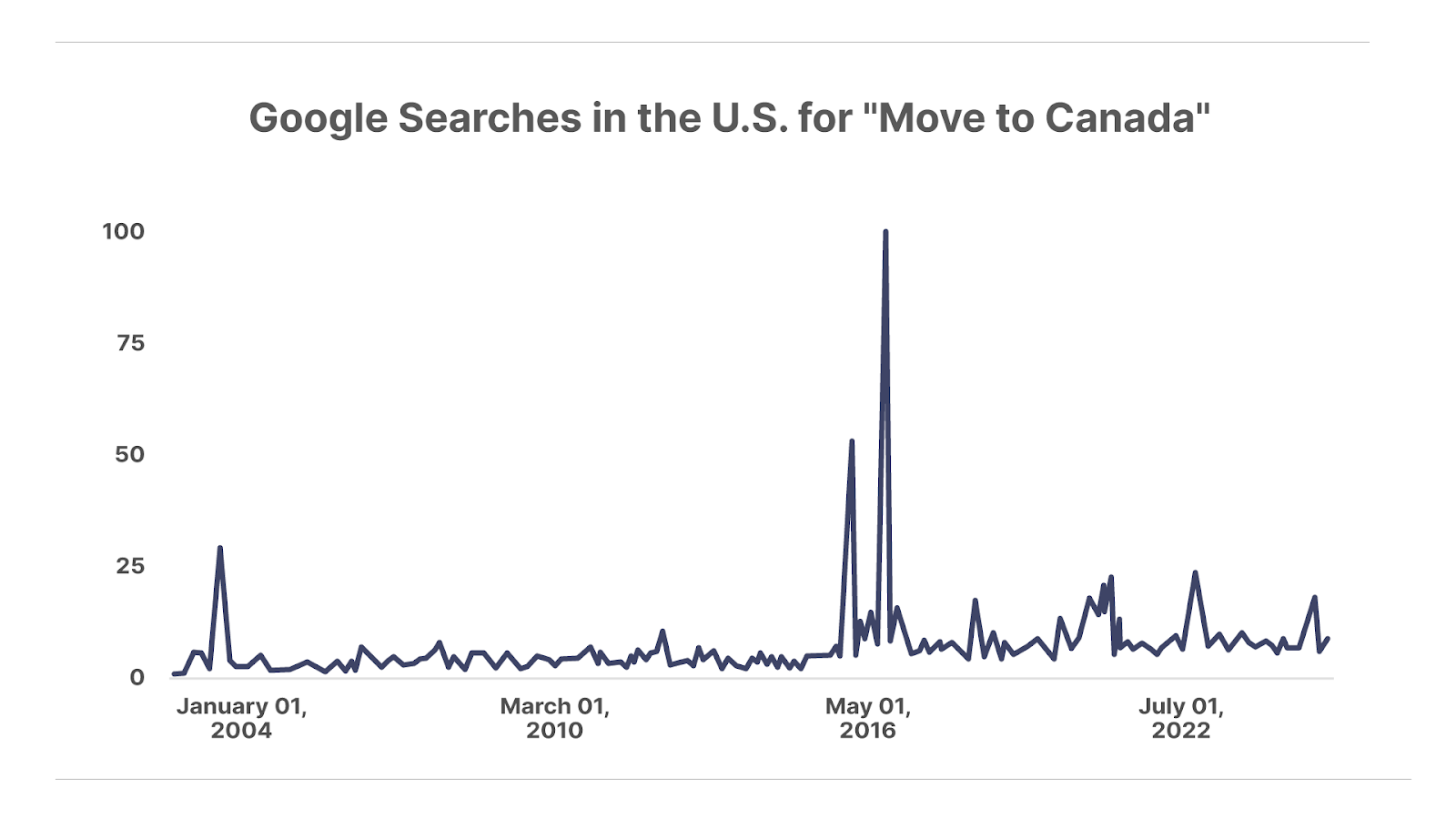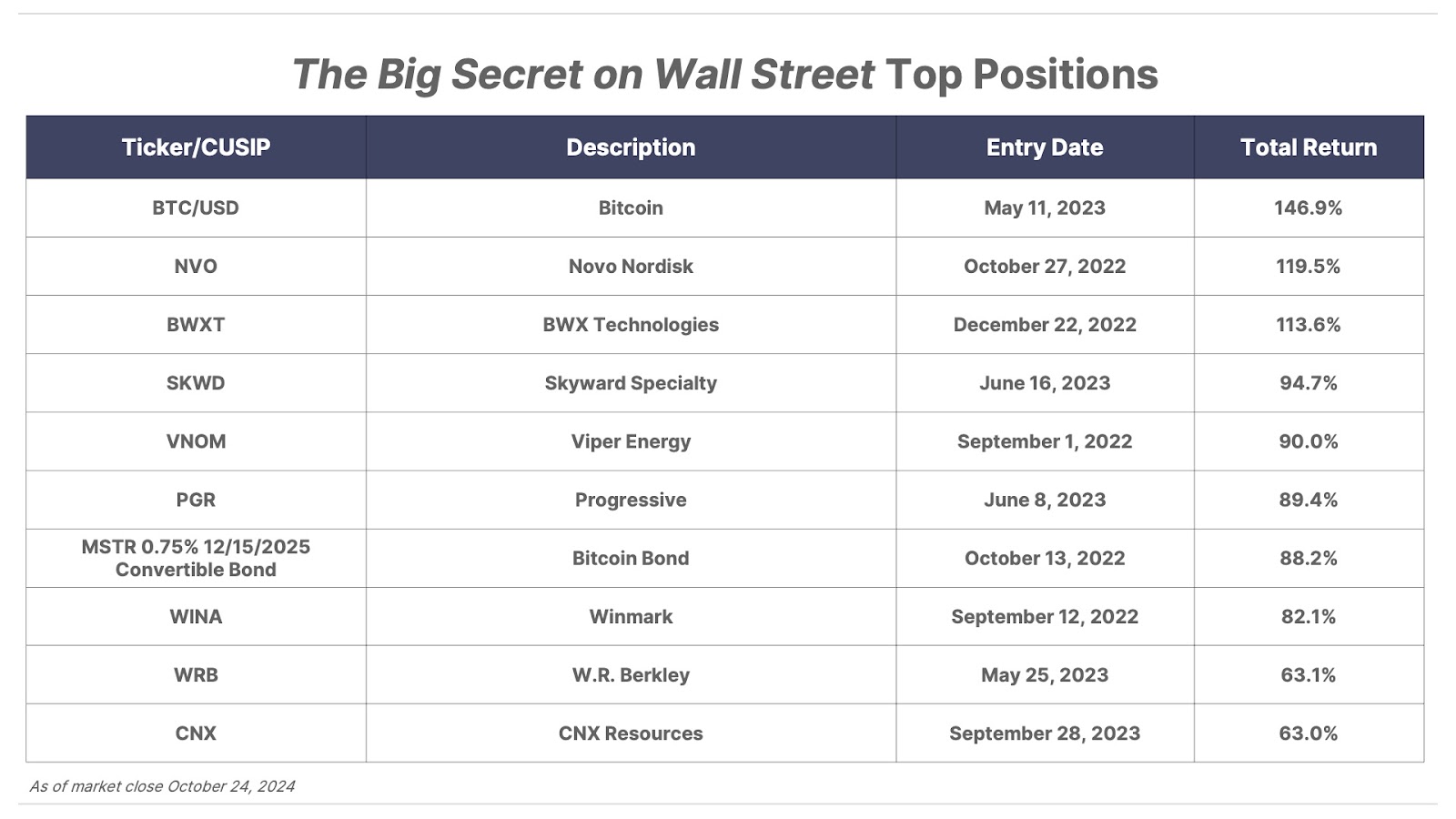Issue #21, Volume #1

Passports, Guns, and Money… Get ’em Before You Need ’em
Three Things You Need To Know Now:
1. The bond market is fighting the Fed. Existing-home sales collapsed by 14% in September, down to just 3.84 million homes, the lowest level in 14 years. The Federal Reserve’s 50-basis-point rate cut on September 18 was supposed to boost home sales, not hurt them. Normally, long-term interest rates fall when the Fed is cutting short-term rates. Unless, of course, investors fear the Fed is making a policy mistake. The bond market’s concern seems to be that the Fed is cutting rates too soon, with inflation remaining well above its 2% target. This is a big problem, since most borrowing in the real economy – like the 30-year mortgage to buy a new house – is based on these long-term rates. Mortgage rates are up nearly 50 basis points, approaching 7%, since the Fed’s rate cut, adding further pressure to already-anemic new home sales. Bond investors are demanding extra protection, in the form of higher yields, against the threat of future inflation. This will make it much harder for the Fed to support the economy and financial markets with further rate cuts.
2. The U.S. labor market continues to weaken. It’s been another month of bad news for the jobs market – and therefore the overall economy. Continuing jobless claims, which represent the number of unemployed people who qualify for benefits under unemployment insurance, have hit a three-year high. The increase in claims means that more people are staying unemployed for longer. Since June 2022, claims have risen by 41% to nearly 1.9 million. To make matters worse, new job postings are falling – down 27% from last year – making it harder for those who need a job to find a job. With the unemployment rate still above 4%, with credit cards maxed out, and inflation still stubbornly high, there is nothing left to power the economy forward.

3. Consumer sentiment is improving, but… This morning, the University of Michigan reported its Consumer Sentiment Index rose to a six-month high of 70.4 in October. According to the survey’s director, the improvement was largely driven by expectations for lower interest rates following the Fed’s recent cut. This marks the third consecutive increase in the index, as it continues to gradually trend higher since hitting a multi-decade low of 50 in June 2022. However, as the chart below shows, the index remains historically low, and still sits well below levels that preceded five of the last six recessions.

And one more thing…
Wednesday’s Daily Journal contained a poll that asked “Who do you think will win the U.S. presidential election?” As of today, 84% of Daily Journal readers think former President Donald Trump will be the next U.S. president, compared to just 16% who think it will be Vice President Kamala Harris. That sentiment is directionally similar to other gauges that aim to predict who will next occupy the White House. Shares of Trump Media & Technology Group (DJT), which operates the Truth Social social media platform, hit a 52-week low on September 24, when betting sites were giving Harris a 52% chance of winning. Since that date, shares of DJT have risen 192%, while the top betting sites have also turned heavily in Trump’s favor over that period – with Polymarket bettors giving him a 66% chance of winning, with Kalshi 60%, and PredictIt 57%… But as we wrote on October 9, in some ways it doesn’t really matter who wins, since both candidates are ignoring the biggest issue facing the country right now – the ever-increasing $35.8 trillion of federal debt, which both Harris and Trump will dramatically increase with their policies. Mises Institute fellow Peter St Onge recently talked with us about this, and what it means for you. What transpires in this conversation will astound you. Check it out here.

What’s Your Plan Z?: What to Do When Things Go Bad
Buy gold (the right way)…
And Bitcoin (but you knew that).
Prepare to buy capital efficient Lindy Forever Companies, and property-and-casualty insurance stocks, when the time is right.
Hedge (more on that below).
That’s part of what Porter discusses in his conversation with economist Peter St Onge – in anticipation of what comes after the U.S. presidential elections in 10 days.
But… what if things get really bad?
The ATM goes dry because your bank – say, Bank of America, and also lots of others – goes bust. Treasury yields, now at 4%, spike to 10%. Uncle Sam drafts your 401(k) to be a foot soldier in the war on the deficit. Inflation hits 50% and the value of the U.S. dollar is – who knew? – just the paper it’s printed on. The internet goes down. Folks with U.S. passports – remember COVID travel restrictions? – aren’t welcome in other countries. Talk of civil war isn’t on the fringe any more.
If Plan B is going to the Grand Canyon instead of visiting the grandkids this summer, Plan Z is what you do when these sorts of things become reality.
Or actually… it’s what you do before they happen. Don’t be the guy trying to buy an umbrella when it’s raining. Get insurance before the house is on fire.
I (Kim Iskyan) have lived in countries in the midst of political upheaval and a massive currency collapse and an explosion of domestic terrorism (Russia, 1990s and 2000s)… countries just emerging into the sunlight after a 36-year dictatorship and during a coup d’etat (Spain, late 1970s)… recovering from a devastating civil war (Sri Lanka, early 2010s)… blockaded by two enemy powers (Armenia, 2000s (and still))… and I’ve traveled to countries in the midst of military coups, and anti-government riots (and a lot of other things that are becoming more commonplace here in modern-day America).
And this is what I’m doing…
1. Keeping cash. Yes, it might be worth a whole lot less. But a crisp $20 bill – or better, a Ben Franklin – will still allow you to buy potatoes, put gas in the car, and keep the wolves at bay. (Gold coins work better… our friends at Asset Strategies International are a good place to start.)
2. Printing it out. Having everything – banking statements, brokerage confirmations, Social Security contributions, your 401(k), for starters – on line is mighty convenient. Until it’s not. In a digital world, analog solutions are often met with eye rolls by younger generations… but I’d just as soon have a hard copy rather than suddenly find that any evidence of my assets has vanished. And while we’re at it, maps – not the GPS kind that require cell service – but those that you used to get at AAA, that lived in your car’s glove compartment, are worth getting before there’s a run on them.
3. Hedging my dollars. In our Breaking Point presentation, Porter describes a hedge against the decline in the U.S. dollar that’s very easy to do. Currency (unlike a stock) rises or falls only relative to another currency. So before the U.S. dollar collapses, get exposure to other currencies. (Another way to do this is via gold, of course… which was the subject of a recent conversation that Porter had with world-class gold expert Marin Katusa – available here.
4. Getting guns. Unlike many of my colleagues here at Porter & Co. – where the office is adorned with Porter’s hunting kills – I don’t own a gun. And for the first time in my life, I’m contemplating getting one. Because if there’s a civil war, I don’t want to be the guy trying to get a gun when everyone else is.

5. Stocking up on apocalypse food. Dried fruit… peanut butter… canned vegetables… plenty of pasta. There are worse things than a basement pantry that looks like a branch of Costco. And it’s a lot more useful than the toilet paper that people bought way too much of a few years back.
6 Getting my eyes fixed. The last thing you want when things are coming apart at the seams is for your glasses to break. Lasik surgery is only possible when the electricity still works.
For some people, the answer isn’t figuring things out here: it’s leaving America altogether. A Monmouth University poll from February found that 34% of Americans “would like to go and settle in another country if they were free to do so,” compared to just one in 10 Americans who felt that way 50 years ago. (Notably, in the recent survey slightly over half of polled Americans under the age of 35 said they wanted to leave – compared to 17% of those over the age of 55.)
Politics of course has a lot to do with the desire to leave Uncle Sam behind. “These Americans Say They’ll Move Abroad If Their Candidate Loses,” headlined a story last week in the New York Times. Google searches in the U.S. for “move to Canada” have spiked right around every election going back to 2004 – as have (forgotten-tomorrow) promises by celebrities to leave town if their candidate doesn’t win.

As it happens, moving to (say) Canada isn’t so easy. The fact is, no country today is eager for immigrants – not even folks coming from the U.S. So if you’re seriously looking at Plan Z, getting a second citizenship (or even residency) to be able to move abroad is a long-term project. Grandparents who emigrated to America from the old country may be a bridge to a second passport – and, for many citizenships, money makes it easier to immigrate.
Also, just like you wouldn’t put all your money in a single stock, you shouldn’t have all your money in a single currency or financial institution. Offshore banking has a naughty image – but done legally, is smart. Due to the strict requirements imposed by the U.S. government on foreign institutions, finding a bank abroad that will even accept Americans’ money (yes… they’ll ask) can be difficult.
What about a place to live? In coming months Porter will sit down with one of the world’s experts on helping Americans find real estate – to move to, or as an investment – in Panama, Portugal, Montenegro, and elsewhere… stay tuned.
But for now… check out Porter’s presentation. Visit the ATM. Buy another printer cartridge. Find the box of bullets. And get ready.
What are you doing to prepare for what’s next? Let us know: [email protected]
Kim Iskyan
Stevenson, MD
P.S. We’ve been writing a lot about gold. As we’ve written recently, it’s on a tear. What isn’t yet, though, are the shares of gold miners. At some point soon, that’s going to change. Find out how to best prepare for that – while hedging your portfolio at the same time – by watching Porter’s discussion with gold expert Marin Katusa.

